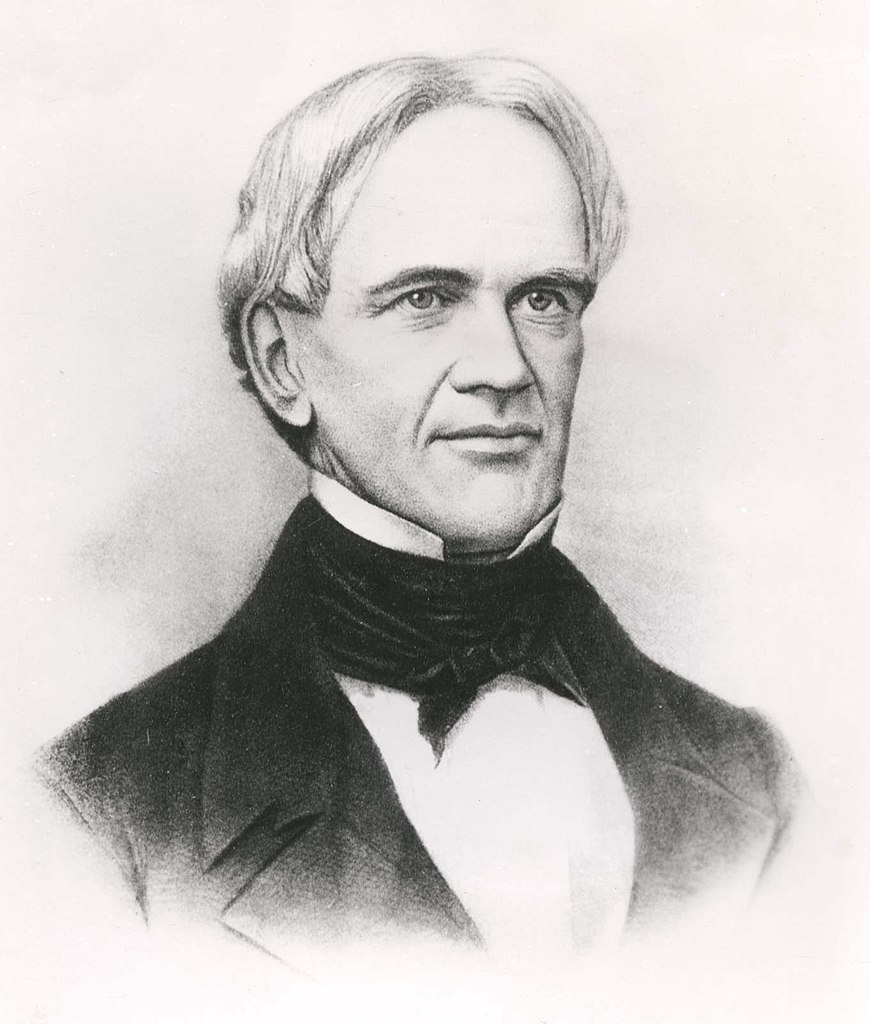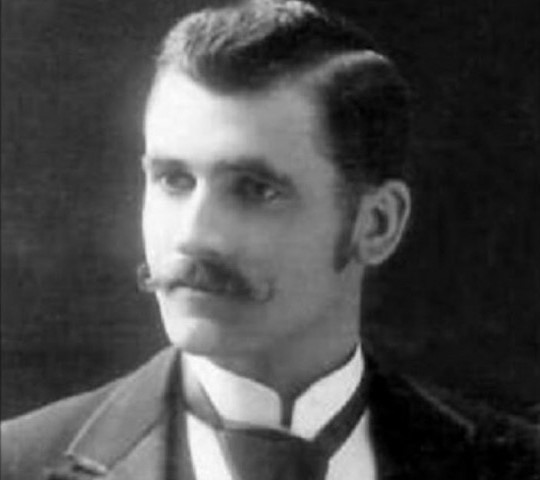

Who Invented Homework? A Big Question Answered with Facts

Crystal Bourque

Delving into the intriguing history of education, one of the most pondered questions arises: Who invented homework?
Love it or hate it, homework is part of student life.
But what’s the purpose of completing these tasks and assignments? And who would create an education system that makes students complete work outside the classroom?
This post contains everything you’ve ever wanted to know about homework. So keep reading! You’ll discover the answer to the big question: who invented homework?
Who Invented Homework?
The myth of roberto nevilis: who is he, the origins of homework, a history of homework in the united states, 5 facts about homework, types of homework.
- What’s the Purpose of Homework?
- Homework Pros
- Homework Cons
When, How, and Why was Homework Invented?

Daniel Jedzura/Shutterstock.com
To ensure we cover the basics (and more), let’s explore when, how, and why was homework invented.
As a bonus, we’ll also cover who invented homework. So get ready because the answer might surprise you!
It’s challenging to pinpoint the exact person responsible for the invention of homework.
For example, Medieval Monks would work on memorization and practice singing. Ancient philosophers would read and develop their teachings outside the classroom. While this might not sound like homework in the traditional form we know today, one could argue that these methods helped to form the basic structure and format.
So let’s turn to recorded history to try and identify who invented homework and when homework was invented.
Pliny the Younger

Credit: laphamsquarterly.org
Mention of homework appears in the writings of Pliny the Younger, meaning we can trace the term ‘homework’ back to ancient Rome. Pliny the Younger (61—112 CE) was an oratory teacher, and often told his students to practice their public speaking outside class.
Pliny believed that the repetition and practice of speech would help students gain confidence in their speaking abilities.
Johann Gottlieb Fichte

Credit: inlibris.com
Before the idea of homework came to the United States, Germany’s newly formed nation-state had been giving students homework for years.
The roots of homework extend to ancient times, but it wasn’t until German Philosopher Johann Gottlieb Fichte (1762—1814) helped to develop the Volksschulen (People’s Schools) that homework became mandatory.
Fichte believed that the state needed to hold power over individuals to create a unified Germany. A way to assert control over people meant that students attending the Volksshulen were required to complete assignments at home on their own time.
As a result, some people credit Fichte for being the inventor of homework.
Horace Mann

Credit: commons.wikimedia.org
The idea of homework spread across Europe throughout the 19th century.
So who created homework in the United States?
The history of education and homework now moves to Horace Mann (1796—1859), an American educational reformer, spent some time in Prussia. There, he learned more about Germany’s Volksshulen, forms of education , and homework practices.
Mann liked what he saw and brought this system back to America. As a result, homework rapidly became a common factor in students’ lives across the country.

Credit: medium.com
If you’ve ever felt curious about who invented homework, a quick online search might direct you to a man named Roberto Nevilis, a teacher in Venice, Italy.
As the story goes, Nevilis invented homework in 1905 (or 1095) to punish students who didn’t demonstrate a good understanding of the lessons taught during class.
This teaching technique supposedly spread to the rest of Europe before reaching North America.
Unfortunately, there’s little truth to this story. If you dig a little deeper, you’ll find that these online sources lack credible sources to back up this myth as fact.
In 1905, the Roman Empire turned its attention to the First Crusade. No one had time to spare on formalizing education, and classrooms didn’t even exist. So how could Nevilis spread the idea of homework when education remained so informal?
And when you jump to 1901, you’ll discover that the government of California passed a law banning homework for children under fifteen. Nevilis couldn’t have invented homework in 1905 if this law had already reached the United States in 1901.

Inside Creative House/Shutterstock.com
When it comes to the origins of homework, looking at the past shows us that there isn’t one person who created homework. Instead, examining the facts shows us that several people helped to bring the idea of homework into Europe and then the United States.
In addition, the idea of homework extends beyond what historians have discovered. After all, the concept of learning the necessary skills human beings need to survive has existed since the dawn of man.
More than 100 years have come and gone since Horace Mann introduced homework to the school system in the United States.
Therefore, it’s not strange to think that the concept of homework has changed, along with our people and culture.
In short, homework hasn’t always been considered acceptable. Let’s dive into the history or background of homework to learn why.
Homework is Banned! (The 1900s)
Important publications of the time, including the Ladies’ Home Journal and The New York Times, published articles on the negative impacts homework had on American children’s health and well-being.
As a result, California banned homework for children under fifteen in 1901. This law, however, changed again about a decade later (1917).
Children Needed at Home (The 1930s)
Formed in 1923, The American Child Health Association (ACHA) aimed to decrease the infant mortality rate and better support the health and development of the American child.
By the 1930s, ACHA deemed homework a form of child labor. Since the government recently passed laws against child labor , it became difficult to justify homework assignments. College students, however, could still receive homework tasks as part of their formal schooling.

Studio Romantic/Shutterstock.com
A Shift in Ideas (The 1940s—1950s)
During the early to mid-1900s, the United States entered the Progressive Era. As a result, the country reformed its public education system to help improve students’ learning.
Homework became a part of everyday life again. However, this time, the reformed curriculum required teachers to make the assignments more personal.
As a result, American students would write essays on summer vacations and winter breaks, participate in ‘show and tell,’ and more.
These types of assignments still exist today!
Homework Today (The 2000s)
The focus of American education shifted again when the US Department of Education was founded in 1979, aiming to uplevel education in the country by, among other things, prohibiting discrimination ensuring equal access, and highlighting important educational issues.
In 2022, the controversial nature of homework in public schools and formal education is once again a hot topic of discussion in many classrooms.
According to one study , more than 60% of college and high school students deal with mental health issues like depression and anxiety due to homework. In addition, the large number of assignments given to students takes away the time students spend on other interests and hobbies. Homework also negatively impacts sleep.
As a result, some schools have implemented a ban or limit on the amount of homework assigned to students.
Test your knowledge and check out these other facts about homework:
- Horace Mann is also known as the ‘father’ of the modern school system and the educational process that we know today (read more about Who Invented School ).
- With a bit of practice, homework can improve oratory and writing skills. Both are important in a student’s life at all stages.
- Homework can replace studying. Completing regular assignments reduces the time needed to prepare for tests.
- Homework is here to stay. It doesn’t look like teachers will stop assigning homework any time soon. However, the type and quantity of homework given seem to be shifting to accommodate the modern student’s needs.
- The optimal length of time students should spend on homework is one to two hours. Students who spent one to two hours on homework per day scored higher test results.
- So, while completing assignments outside of school hours may be beneficial, spending, for example, a day on homework is not ideal.
Explore how the Findmykids app can complement your child’s school routine. With features designed to ensure their safety and provide peace of mind, it’s a valuable tool for parents looking to stay connected with their children throughout the day. Download now and stay informed about your child’s whereabouts during their academic journey.

Ground Picture/Shutterstock.com
The U.S. Department of Education provides teachers with plenty of information and resources to help students with homework.
In general, teachers give students homework that requires them to employ four strategies. The four types of homework types include:
- Practice: To help students master a specific skill, teachers will assign homework that requires them to repeat the particular skill. For example, students must solve a series of math problems.
- Preparation: This type of homework introduces students to the material they will learn in the future. An example of preparatory homework is assigning students a chapter to read before discussing the contents in class the next day.
- Extension: When a teacher wants to get students to apply what they’ve learned but create a challenge, this type of homework is assigned. It helps to boost problem-solving skills. For example, using a textbook to find the answer to a question gets students to problem-solve differently.
- Integration: To solidify the student learning experience , teachers will create a task that requires the use of many different skills. An example of integration is a book report. Completing integration homework assignments helps students learn how to be organized, plan, strategize, and solve problems on their own. Encouraging effective study habits is a key idea behind homework, too.
Ultimately, the type of homework students receive should have a purpose, be focused and clear, and challenge students to problem solve while integrating lessons learned.
What’s the Purpose of Homework?

LightField Studios/Shutterstock.com
Homework aims to ensure individual students understand the information they learn in class. It also helps teachers to assess a student’s progress and identify strengths and weaknesses.
For example, school teachers use different types of homework like book reports, essays, math problems, and more to help students demonstrate their understanding of the lessons learned.
Does Homework Improve the Quality of Education?
Homework is a controversial topic today. Educators, parents, and even students often question whether homework is beneficial in improving the quality of education.
Let’s explore the pros and cons of homework to try and determine whether homework improves the quality of education in schools.
Homework Pros:
- Time Management Skills : Assigning homework with a due date helps students to develop a schedule to ensure they complete tasks on time. Personal responsibility amongst students is thereby promoted.
- More Time to Learn : Students encounter plenty of distractions at school. It’s also challenging for students to grasp the material in an hour or less. Assigning homework provides the student with the opportunity to understand the material.
- Improves Research Skills : Some homework assignments require students to seek out information. Through homework, students learn where to seek out good, reliable sources.

Homework Cons:
- Reduced Physical Activity : Homework requires students to sit at a desk for long periods. Lack of movement decreases the amount of physical activity, often because teachers assign students so much homework that they don’t have time for anything else. Time for students can get almost totally taken up with out-of-school assignments.
- Stuck on an Assignment: A student often gets stuck on an assignment. Whether they can’t find information or the correct solution, students often don’t have help from parents and require further support from a teacher. For underperforming students, especially, this can have a negative impact on their confidence and overall educational experience.
- Increases Stress : One of the results of getting stuck on an assignment is that it increases stress and anxiety. Too much homework hurts a child’s mental health, preventing them from learning and understanding the material.
Some research shows that homework doesn’t provide educational benefits or improve performance, and can lead to a decline in physical activities. These studies counter that the potential effectiveness of homework is undermined by its negative impact on students.
However, research also shows that homework benefits students—provided teachers don’t give them too much. Here’s a video from Duke Today that highlights a study on the very topic.
Homework Today
The question of “Who Invented Homework?” delves into the historical evolution of academic practices, shedding light on its significance in fostering responsibility among students and contributing to academic progress. While supported by education experts, homework’s role as a pivotal aspect of academic life remains a subject of debate, often criticized as a significant source of stress. Nonetheless, when balanced with extracurricular activities and integrated seamlessly into the learning process, homework continues to shape and refine students’ educational journeys.
Maybe one day, students won’t need to submit assignments or complete tasks at home. But until then, many students understand the benefits of completing homework as it helps them further their education and achieve future career goals.
Before you go, here’s one more question: how do you feel about homework? Do you think teachers assign too little or too much? Get involved and start a discussion in the comments!

Elena Kharichkina/Shutterstock.com
Who invented homework and why?
The creation of homework can be traced back to the Ancient Roman Pliny the Younger, a teacher of oratory—he is generally credited as being the father of homework! Pliny the Younger asked his students to practice outside of class to help them build confidence in their speaking skills.
Who invented school homework?
The invention of school homework is often attributed to Roberto Nevilis, an Italian teacher in the early 1900s. He introduced homework as a method to reinforce lessons outside the classroom. However, similar practices date back to ancient times when students were tasked with memorizing texts and practicing skills at home.
Homework has since evolved into a widely used educational tool, emphasizing independent learning and skill mastery, though debates on its effectiveness continue. Teachers today use homework to help students apply classroom knowledge in practical settings.
Who invented homework as a punishment?
There’s a myth that the Italian educator Roberto Nevilis first used homework as a means of punishing his students in the early 20th century—although this has now been widely discredited, and the story of the Italian teacher is regarded as a myth.
Why did homework stop being a punishment?
There are several reasons that homework ceased being a form of punishment. For example, the introduction of child labor laws in the early twentieth century meant that the California education department banned giving homework to children under the age of fifteen for a time. Further, throughout the 1940s and 1950s, there was a growing emphasis on enhancing students’ learning, making homework assignments more personal, and nurturing growth, rather than being used as a form of punishment.
The picture on the front page: Evgeny Atamanenko/Shutterstock.com

Lockdown left our children with no other option other than remote education. Now that schools…

Even in today’s world, child trafficking is still a huge problem. Incidents of human trafficking…

The first day of school is a real challenge for parents on stress resistance. Will…
Subscribe now!
Glad you've joined us🎉🎉.

Who Invented School Homework? [When, Where & How]
You can remember just sitting down and doing homework—no worries, no stress, and getting an A on your paper. School was the best time of your life. Ok, maybe that’s not true, but the point is you would always wonder who invented school homework.
The very first homework assignment can be traced all the way back to 1905 when an Italian teacher named Roberto Nevilis first invented the idea. He wanted his students to get used to thinking for themselves, so he gave them assignments that would require them to look up information and use it in their work.
Whether you’re a student trying to get ahead, or a parent wondering about homework for your own children, this article will help you to get a better understanding of the whole story about homework.
Interested in who invented school tests? Let’s find out here.
What Was the Original Purpose of Homework?
Who invented math homework, who invented holiday homework, who invented summer homework, who invented homework meme, the invention of homework, why homework is bad for high school students, who was roberto novelis, why does homework exist, when was school homework first invented, was homework invented as a punishment, · performance of creative works (essay writing, etc.), · performance of written exercises, · mastering material under study according to the textbook, · performance of oral exercises, · the 1900s (anti-homework), · the 1930s (homework as child labor), · the 1980s, · early 21st century, school homework today, why does homework exist, is homework illegal in california, why do students dislike homework, why should homework be banned from schools, who invented school homework and why.

The person who invented school homework in 1905 is a man named Roberto Nevilis. He created this new way of learning to help students who were struggling with their lessons.
Nevills was passionate about education and had a special interest in how children learn best. He believed that children should be treated as individuals with unique abilities and needs.
He also believed that children should be encouraged to take responsibility for their own learning.
Nevilis realized that some of his students were not getting enough practice at home, so he decided to make a plan that would give them extra practice without them even knowing it.
He made up a booklet of questions for the students to answer about their lessons and gave it to them at the end of each day.
The next morning, he collected the booklets from his students and returned them with corrections and new questions for them to answer during recess.
This system became very popular with teachers all over Europe because it made learning more interesting for both students and teachers alike!
Homework is meant to reinforce what we have already learned during the day.
This can be seen through taking notes in class and then reviewing them after class by doing homework assignments.
This is the reason why many parents are against the idea of giving their children homework.
They believe that if their children did not do their homework, then they should not be punished for it.
The invention of math homework is credited to a man named Roberto Nevilis.
He was born in 1881, and he studied at the University of Rome.
While there, he became interested in mathematics and decided to pursue a career in teaching.
Math homework is a type of assignment that students are required to complete at home.
The purpose of this assignment is to help students learn the material they learn in class, and also to reinforce it.
Math homework can be completed on a variety of subjects, but one of the most common types is algebra and geometry.
The tradition of giving children holiday homework goes back to the 1920s.
It was thought to be a good way to keep children occupied over Christmas and New Year.
The practice became popular amongst schools in America and spread to Britain during World War II when many schools were evacuated to the countryside.
The practice continued after the war ended, but has since declined in popularity.
However, some schools still use it as a way of helping pupils keep up their grades during long periods away from school.
Read about the inventor of school uniforms .
In the 20th century, summer homework was invented to ensure that students did not forget what they learned during the school year.
Homework was a way for parents and teachers to ensure that students retained their knowledge.
Summer homework has been around for decades, but some parents don’t think it’s necessary. In fact, some argue that it’s harmful.
The debate over whether or not summer homework for school is good for children continues today.
Students may have different opinions about whether or not summer homework is necessary.
Some students enjoy being able to relax during the summer months and have time to do other activities.
Homework memes have become an internet sensation and the inventor is nowhere to be found.
The fact that the inventor of the homework meme is unknown adds to the mystery, making it more popular than ever.
The original source of the meme is unknown. It could be a high school student or even a college student.
Whoever it was, they definitely did not expect homework memes to become so popular.
The invention of homework is a bit complicated. Some say that Roberto Nevilis invented homework in the 20th century.
Others claim that it existed in Ancient Greece. However, most people agree that the Russians did make homework assignments first.
Homework was used as a way to teach children moral values and ethics .
Nevilis’ homework is said to be one of the most important inventions of all time.
It was an invention that revolutionized education and changed the way people think about learning.
It is said that he came up with this idea while working as a teacher in a local school in Greece.
One day after class, he found himself sitting alone in his room wondering if there was anything else he could do to help his students learn more effectively.
Who Invented Homework for Students?

The first person who invented school homework for students was Roberto Nevilis, an Italian teacher.
The idea behind homework was to improve students’ knowledge and, at the same time, to punish lazy students
He believed that if students were allowed to practice skills and concepts at home, their understanding of those things would be greater.
He also felt that homework could help teach responsibility and independence by giving students an opportunity to apply what they had learned in new situations outside of school.
Nevilis’ idea spread quickly throughout Europe and later to North America.
Today, homework is still used as a tool for teaching students important skills related to math, a science tutoring business, language arts, and more!
High school students are under a lot of pressure. Between preparing for college and dealing with the stress of being in high school, homework can be a huge burden for many students. Here are some reasons why homework is bad for high school students:
- It takes time away from other activities that are more important to them, like spending time with friends or practicing sports.
- Homework can cause stress, which can lead to mental health issues like depression or anxiety.
- Homework can lead to poor grades because it takes away from the time students have to study for tests and quizzes in class, which leads to lower grades on those tests and quizzes (and possibly even failure).
Many people wonder did Roberto Novelis invent homework. The answer is: YES.
Roberto Novelis was an Italian teacher who invented school homework. He was born in 1877 and died in 1957 at the age of 80.
Roberto was a teacher at the University of Padua in Italy, where he worked for 52 years.
One day, while he was teaching his students about algebraic equations, he realized that they did not understand what he was saying.
So instead of repeating himself and giving them more examples, he decided to give them homework instead.
Roberto wanted to see if it would help his students understand better if they practiced on their own time instead of during class time.
It worked! His students were able to practice at home until they understood what the lesson was about and could answer questions correctly when he gave them back their assignments later in class.
Why Was Homework Invented?
If you’re curious about why homework was invented you should know that initially homework was invented because of the need to strengthen students’ understanding of the lessons they were taught in class.
While some teachers used it as a punishment, others used it as a way to ensure that their students understood and embraced the lessons fully.
Homework was invented because of the need to strengthen students’ understanding of the lessons they were taught in class.
It was used to punish students who were not paying attention in class, or who could not pay attention due to other responsibilities.
Homework was also used as an extension of classroom learning, where the students are given an assignment that requires them to apply what they have learned by creating something new based on their knowledge base.
Homework exists because it’s a good way to practice what you’ve learned in class.
It also helps you learn how to study and manage your time, so when you go into the real world, you’ll be able to keep up with all the things you need to do.
It can help you identify gaps in your understanding of concepts, which can then be filled by another activity or lesson at home or in class.
Homework is a great way for teachers to see how well students are grasping their lessons, and it allows them to adjust their teaching methods as needed.
When Was School Homework Invented?
You might wonder when was homework invented. Well, the answer is that it wasn’t until the beginning of the 20th century.
In fact, it’s hard to imagine a world without schoolwork at all!
But before then, children were expected to spend their time doing things that were more useful for their families or communities.
But in the early 1900s, more and more people started going to school for longer periods.
And as more children went to school for longer periods, they needed additional assignments that would help them learn new concepts—and this was when homework became popularized!
In many schools homework was a part of the punishment for lazy and naughty students.
Nowadays, we don’t think twice about handing our kids assignments or asking them to do extra work at home. But remember: It wasn’t always like that!
To be even more precise, school homework was first invented in 1905 by an Italian teacher named Roberto Nevilis.
This practice spread to other countries and gained popularity.
Years after it was first invented, giving students homework every day became standard in most schools around the world.
The reason why this practice became so popular around the world was that it helped students learn more about the subjects they were studying and improve their grades, which in turn made them more likely to succeed in life.
Did you know that homework was originally invented as a form of punishment?
It’s true! The practice of assigning students homework began in the late 19th century when educators believed that children needed to be taught how to spend their free time productively.
It wasn’t until the late 20th century that researchers discovered the benefits of homework, and it became an essential part of classroom learning.
However, some experts believe that homework is counterproductive and harmful to students’ health.
According to them, take-home assignments are stressful and overburden students.
Types Of Homework
There are many types of homework you can do, and they all serve different purposes. Here are just a few of them:
Writing essays is one of the most effective ways for students to learn how to express themselves in writing style
Students should use their imagination and creativity when doing this type of homework. This type of homework helps students develop their imagination and creativity skills.
Students are given specific tasks, which they have to solve as part of their homework. Their task is to master the material under study according to the textbook and perform it in an exam or a test.
A student has an opportunity to perform oral exercises during his/her free time outside school.
If a student wants to participate in any kind of competition, he/she must practice his/her presentation skills as much as possible before participating in competitions.
History of Homework in Schools in America
Although homework is a mainstay of American education today, it hasn’t always been.
Take a look at the history of school homework in America.
Horace Mann introduced homework to the American education system in 1848.
In 1901, just a few decades after his introduction, homework was banned in the Pacific state of California.
In 1930, the American Child Health Association declared homework a form of child labor and said that it should be abolished because recent laws prohibiting such activities were passed at around the same time.
In its pamphlet, “What Works,” the Department of Education recommended homework as an effective strategy to boost the quality of education.
The report lambasted the state of American public education and called for reforms to right the alarming direction it was headed.
In America, education has changed dramatically since the 1800s.
Nowadays, many educators, students, parents, and other concerned citizens are asking why homework was invented and if it’s still valuable.
These days, looking at school homework is all about making sure that students can do the work they need to do to be college-ready.
Teachers want their students to think critically, resolve problems, and work collaboratively to prepare them for life after high school.
To accomplish this, teachers are shifting away from traditional methods of learning and grading and towards more modern methods of showing students what they need to improve upon.
This means that teachers are often looking at things like group projects, group discussions, and mini-lessons instead of individual tests or essays as ways for students to demonstrate their understanding of concepts.
If you have any questions you can first check this section. Here you can find some of the most common questions when it comes to this topic.
Homework exists to help you take control of your workload, increase your time management skills, and learn how to problem solve independently.
There are no laws against homework in California. In fact, many teachers and schools require students to do homework as part of their learning process.
Students dislike homework because they feel it takes too much time, is boring and pointless, and/or interferes with their social lives.
Research suggests a link between homework and mental health issues in young people, as well as poor academic performance. In middle schoolers, more than 90 minutes of homework per night is associated with lower test scores in math tutoring science.
In conclusion, Roberto Novelis, a man who invented school homework, improved the education system.
He created homework and it made teachers more accountable for what they teach their students.
What are your thoughts on homework? Do you believe that it is helping students or hurting them? Leave your thoughts in the comments below.
Who Invented Sign Language? [When, Where & How]
Who Invented High School? [When, Where & Why]

Uncovering the Past, Shaping the Future.
- [email protected]
- Privacy policy
- Terms of use
Copyright © 2024 Nevada investors

IMAGES
VIDEO